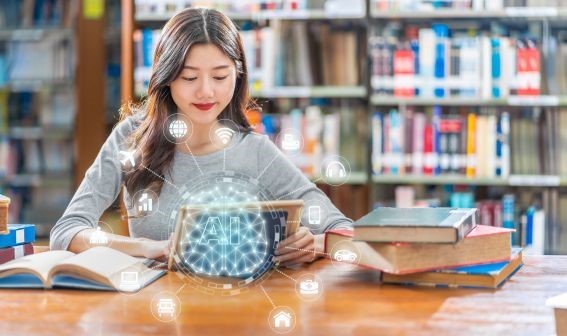
Artificial Intelligence Will Shape Our Future

Although we may be at the forefront of this tech wave, there is no denying that, unlike earlier waves, artificial intelligence is on the brink of affecting nearly every aspect of our society. According to Oberlo, the global AI industry is expected to reach $267 billion by 2027.
Artificial intelligence (AI) is everywhere these days, from smart phones to smart cars, smart fridges, and smart medical diagnostics equipment. According to experts, the technology is already permeating our daily lives. This has a lot to do with the fact that people want to keep pace with new developments in technology and tend to use the latest tools which will help make their lives easier.
But with this rapidly developing technology come many questions. How exactly does AI work? How can it improve our lives? And what will the future hold? Here's how artificial intelligence can shape the future of the entire world.
If you have read a bunch of articles on artificial intelligence, you've most likely heard about machine learning, which refers to the act of training a computer to learn a specific function. You can think of it as the ability to take in and analyze large amounts of data, and then make inferences based on that information.
To achieve this goal, an AI programmer writes an application which allows the computer to recognize a cat or a flower by analyzing and remembering how often it has seen those kinds of things in a huge number of pictures. Over time, the computer will learn those patterns and will begin to recognize and process other images the same way.
At this moment in time, machine learning relies on humans, who must teach computers how to learn. Which leads to the question: will computers be able to teach themselves in the future? The answer is affirmative, and the early results are quite fascinating. But before we jump to conclusions, there's a warning: systems need to be trained properly. Otherwise, if we feed the computers random information, they will create meaningless, nonsensical data. Instead, by showing them how to differentiate correct information, machines will learn to recognize correct data. The process is similar to the way in which we, humans, use our brains during childhood to memorize bits of information.
AI has many practical uses. And since not everyone is on board the AI bandwagon yet, it is worth looking at some practical uses of AI. Whether you love or hate them, autonomous cars are here to stay. And though artificial intelligence is involved in making cars 100% autonomous, we can't forget the human element, which is essential when it comes to teaching the vehicles how to handle dangerous situations.
For some time, drivers were hesitant to use autonomous cars, fearing that the vehicles would crash. While there have been a few minor accidents, it is clear that once the systems become more advanced, they will be able to handle complex situations. I am pretty sure that it won't be long before self-driving cars will help reduce the number of crashes that occur on our roads today.
It is true that it's difficult for a machine to learn from its mistakes if it doesn't know what those mistakes are. This is one of the biggest issues we must overcome when teaching AI how to learn, but we are beginning to see advancements in this area as well. IBM's Watson proved that a computer can be taught to answer questions that are posed in natural language back in 2011. Meanwhile, the platform has evolved even more, and now it is marketed as a system that includes pre-built applications and tools, which are supposed to reduce the costs of AI adoption, while maximizing outcomes.
Even though we may be on the forefront of AI research, I would dare to say that the future looks bright.